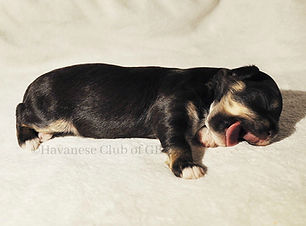
How to find a responsible breeder
We strongly recommend you contact the Secretary of Havanese Club of GB for recommendations of breeders, before you visit or commit to buying a puppy.
Contact details can be found on this website under ‘Club’ Club’--‘officers’ in the top
Visit the Kennel Club Assured Breeders list on the Kennel Club website, and contact breeders individually.
Please accept that there may be a waiting list . Reputable breeders
don’t have puppies ‘in stock’ waiting to be bought. They will breed
purposefully and will have buyers waiting in most cases.
We strongly advise against buying from popular pet sales websites or classifieds. Remember, good breeders don’t have to advertise their litters, they have waiting lists, so these ads rarely lead you to a reputable breeder. AVOID frequent advertisers on these sites, this can be associated with low welfare, high volume production outfit, such as puppy farming or ‘backyard’ breeding.
A word of caution when you have found a breeder by whichever route, you will STILL need to do due diligence, visit, see where and how their dogs live, and whether you are comfortable with their
practices.

Why does it matter?
Firstly, buying puppies from these sources, you are
supporting animal cruelty and exploitation. Havanese were bred to be companions to humans, and they thrive on and need companionship. Their physical and mental health suffers, and their spirit is broken by a life in a crate, withouta bond with their human.
Secondly, environmental influences such as stress, chronic pain, trauma and so on, can not only change how the parent
dogs’ and puppies’ genetic material influences future
health, but it can in fact impact their actual DNA, and these changes can be passed on to future generations.
It makes sense to get a puppy from happy, loved and well cared for parents, and from a happy home that gave them the best possible start in life.

Responsible breeding
Selling puppies is a big business, and many advertisers are low
welfare, large volume producers, only concerned about making
money.
Their dogs are often exploited, bred too young, too old or too
frequently, without proper care and attention.
Parent dogs are often kept in squalid conditions, and may not receive a healthy diet, species appropriate exercise, mental stimulation, or much needed veterinary care. They may live in chronic pain from severe
matting, untreated conditions, rotting teeth and infections and
parasites.
Additionally, most low welfare breeders will not care about the breed as a whole, and would quite happily ruin it as long as they get paid. They will not care about proper structure and function,
the dissemination of genetic disease, or preserving genetic
diversity. Their practices will be detrimental to the future of the breed.
.png)
